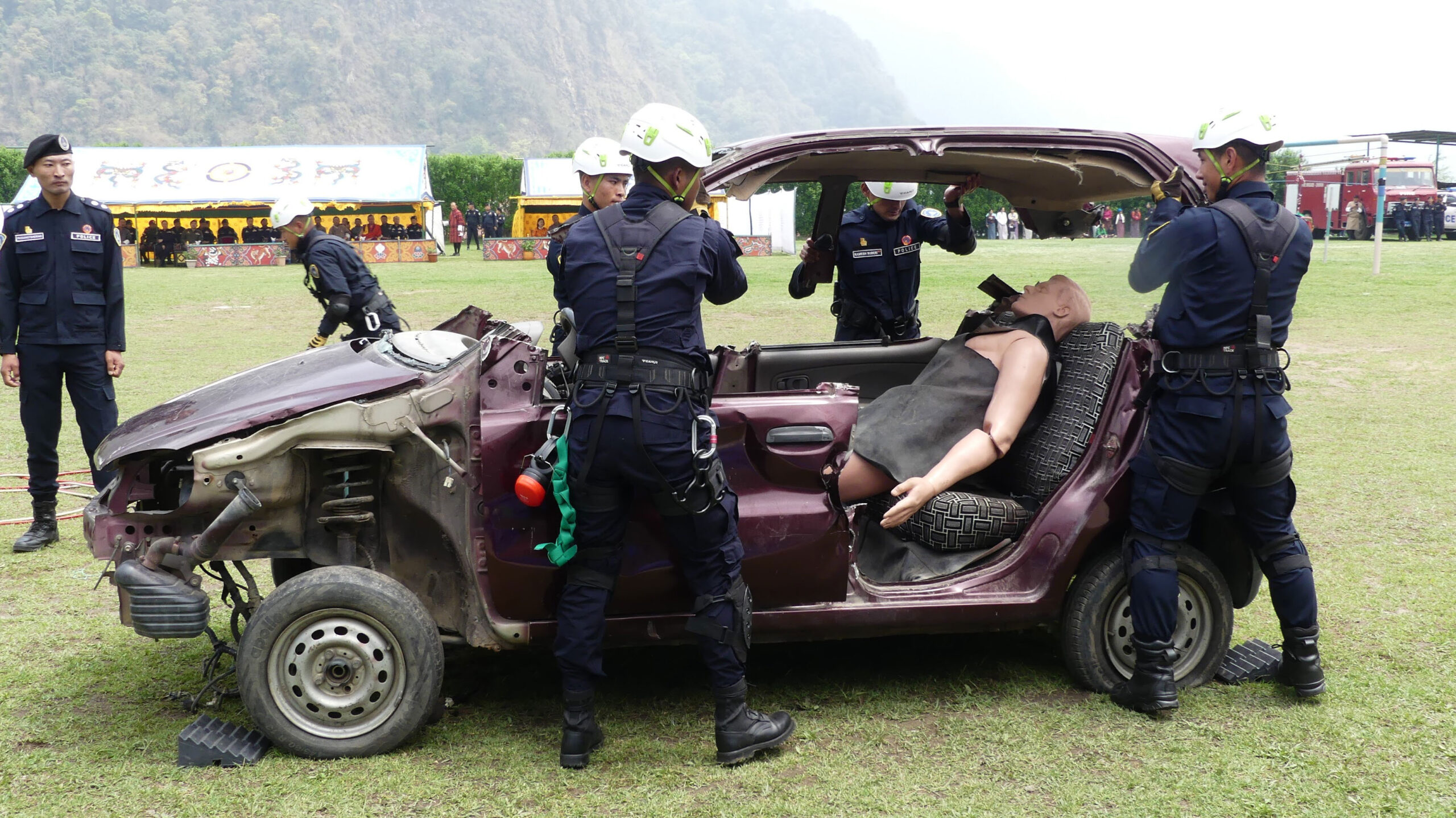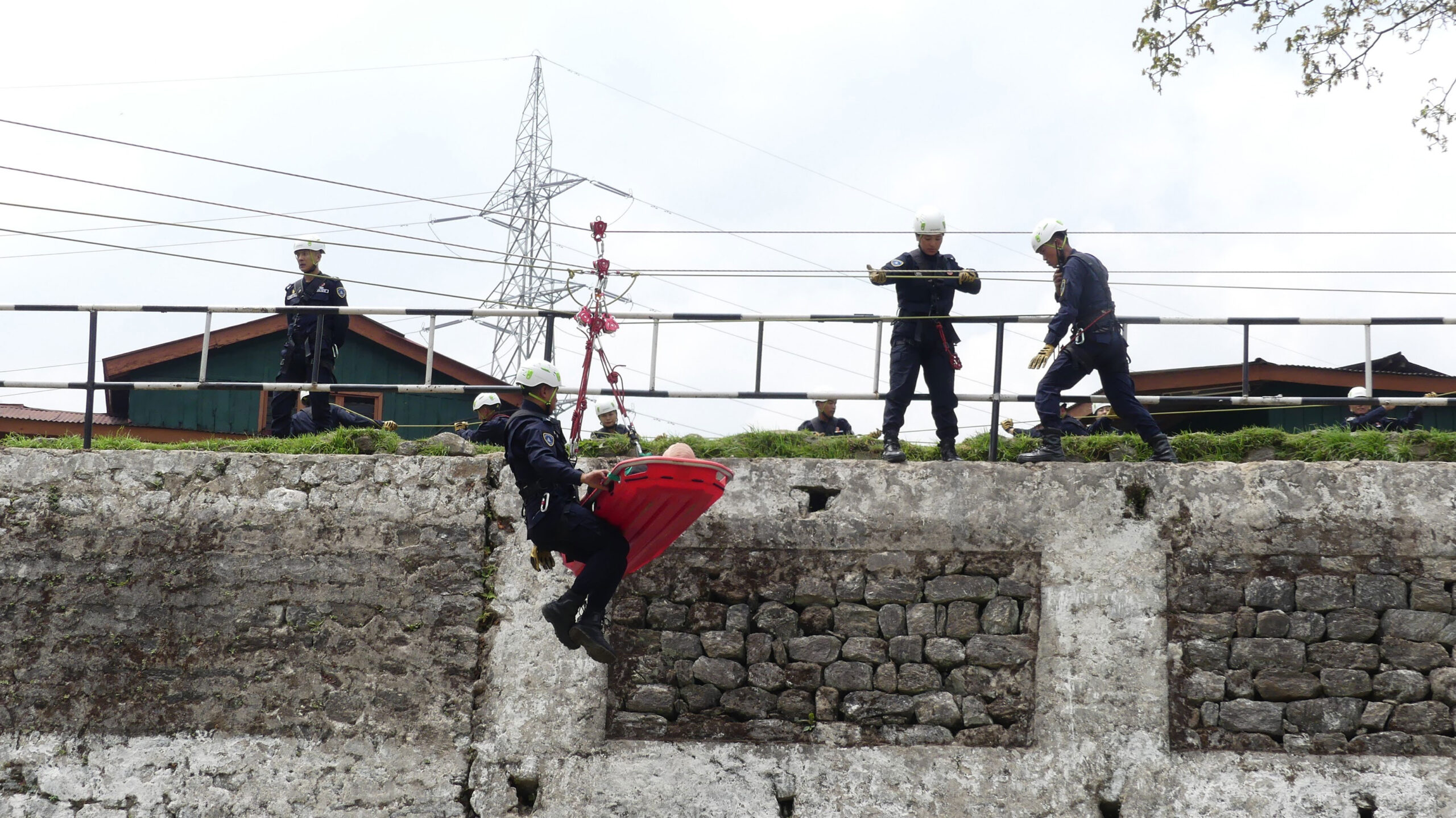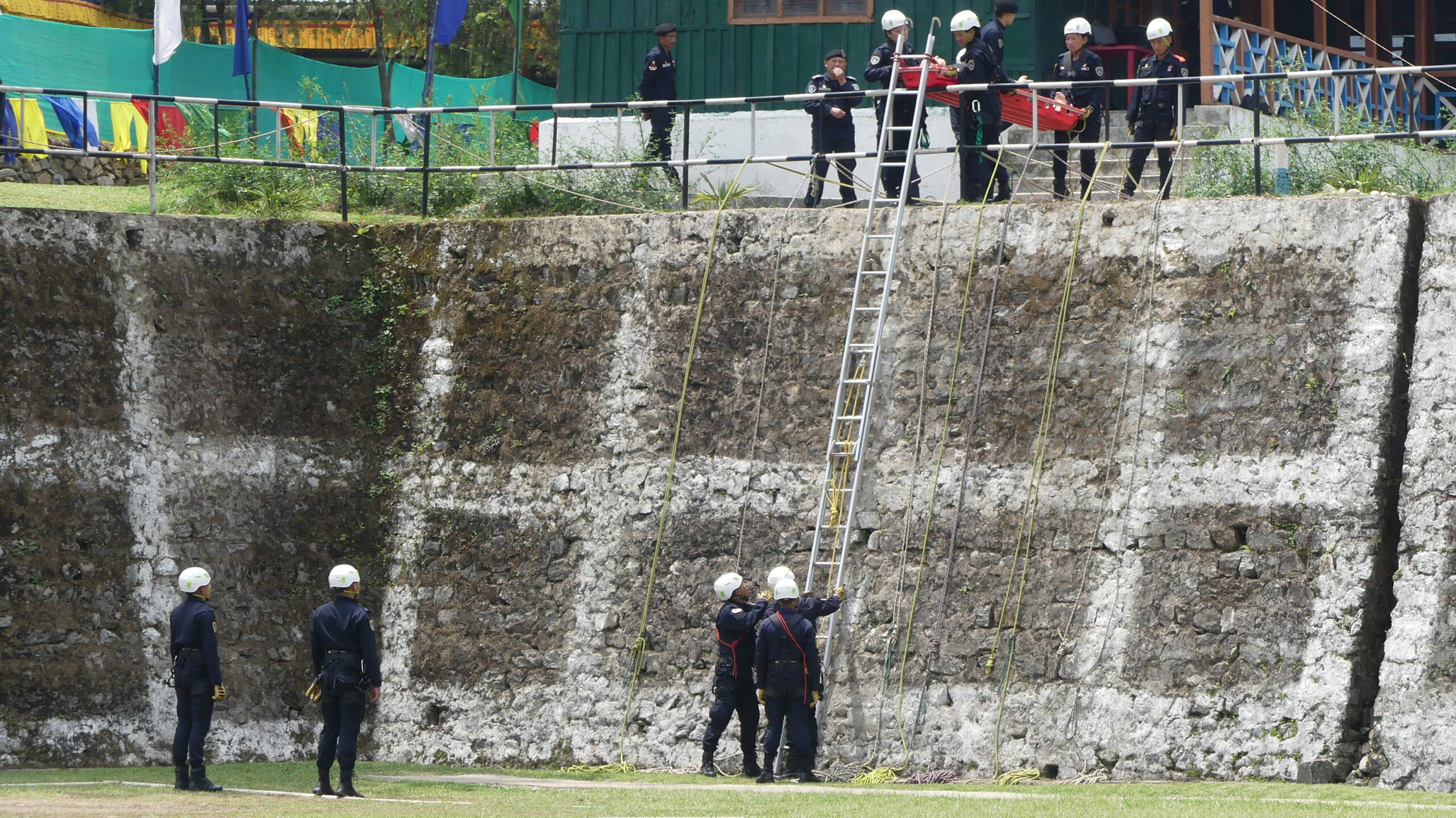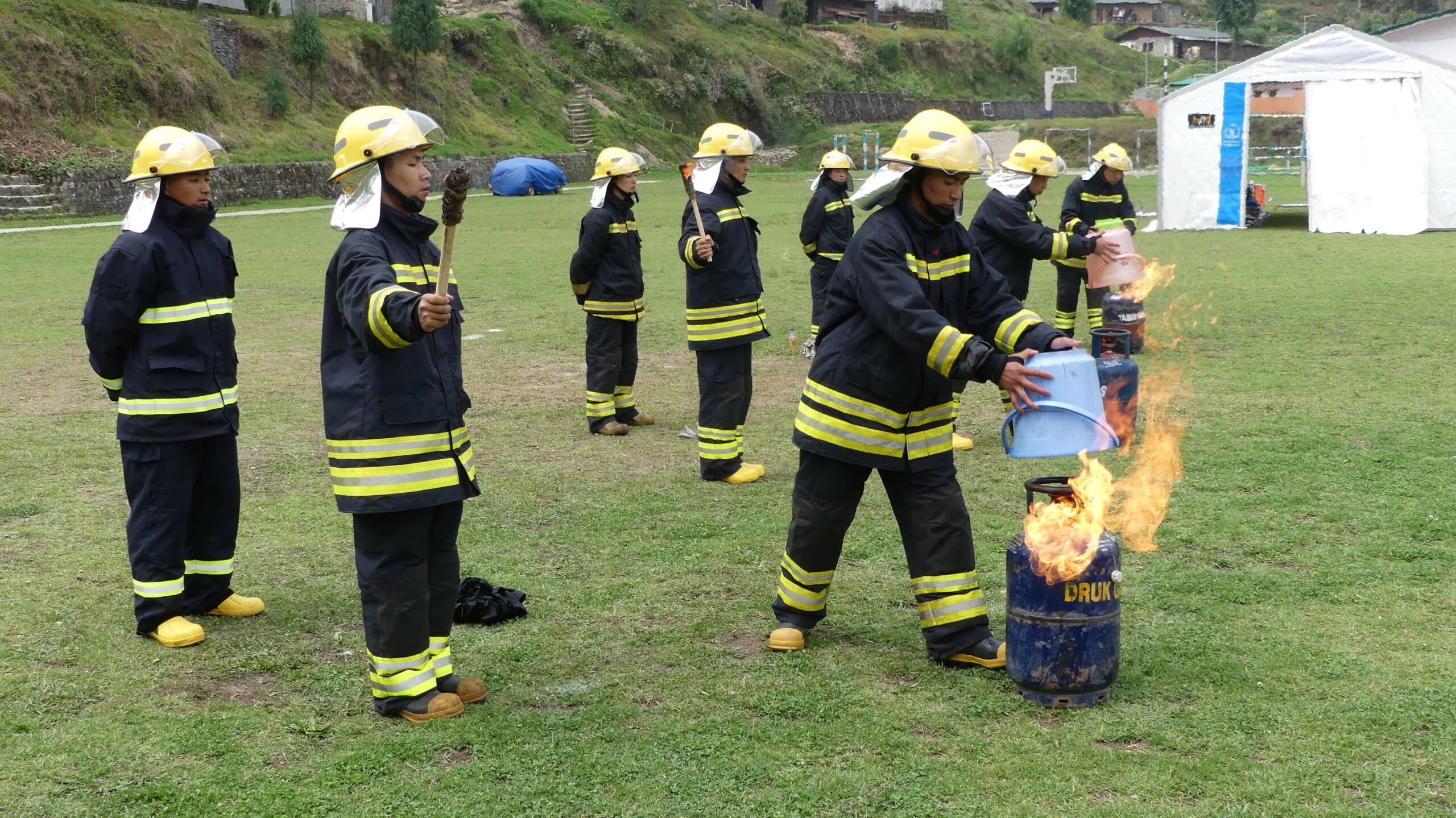YK Poudel—Chukha
The Royal Bhutan Police has trained 179 police officials in one of the four core skills for the Gyalsung national service. The 45-day training on ‘Search and Rescue’ (SAR) and one month ‘Structure Fire Fighting’ (SFF), for community security was completed last week.
With the commencement of the Gyalsung programme nearing, preparations are in full swing.
Chimi Dorji, the chief of police was the chief guest for the event at National Search and Rescue Training Centre (NSRTC). It was attended by the Secretary of Gyalsung Headquarters, Chhukha Dzongda, Lam Neten, Drangpoen, officials from RBP and local government leaders of Tashigatshel.
Commandants for all four Gyalsung academies have been identified along with officials from Royal Bhutan Army, Royal Body Guard and the police who will work collaboratively.
The four Gyalsung academies are Jamtsholing Gyalsung Academy in Samtse, Khotokha Gyalsung Academy in Wangdue, Gyalpoizhing Gyalsung Academy in Mongar, and Pemathang Gyalsung Academy in Samdrupjongkhar.
Seven police officers and 100 police personnel completed the instructor’s training of SAR—another five officers and about 70 police personnel got trained on SFF. All the trainees were assessed before certifying; with all participants securing over an average of 70 percent.



Major Tshewang Thinley, trainer for SAR at NSRTC said that the SAR training was vital in Bhutan owing to its mountainous terrain, further challenged by its vulnerability to unforeseen natural disasters like landslides, forest fires, glacial lake outbursts and earthquakes.
“These instructors will teach the Gyalsups on several SAR components: rope rescue, urban search and rescue, swift water rescue and first aid,” Tshewang Thinley said.
These components of SAR, he said, were identified based on the records of natural disasters Bhutan had been witnessing over the decades.
“The trainees have been given theory and practical sessions—aimed at enhancing the code of conduct and instructional practice termed as ‘Instructor Like Quality’ (ILQ).”
Lieutenant Dema, trainer for SFF, NSRTC, said that the trainees were trained on SFF owing to the growing need of fire safety skills for the youth at an individual level.
“Forest fire and structure fires are common in Bhutan. The trainees are aware of employing fire fighting equipment like hydrant drill, Liquified Petroleum Gas and fire extinguishers,” Lieutenant Dema said.
Kinzang Gyeltshen, 30, a trainee of the SAR programme said that the 45-day long training session allowed him to learn about personal safety and his ability to help others in times of need.
“We are the first batch of SAR trainers who will be training the first batch of Gyalsups. I am confident that this will be a learning experience equally,” he said.
Gyalsung
All the four Gyalsung academies are set to commence in September this year, where a total of 12,933 (6,552 male, 6,381 female) born in 2005 had registered.
Currently, the process of application for deferment and exemptions is underway.
The Gyalsups will undergo Basic Military Training (BMT) for a few months.
Gyalsung—Bhutan’s National Service is a national initiative envisioned by His Majesty The King to build a strong foundation for the future of Bhutan. It was shared in the Royal Address during the 112th National Day on December 17, 2019.
Enacted by the Parliament on November 11, 2022, registration began on October 9, last year. As of April 19, Bhutan has achieved 99.96 percent registration.


